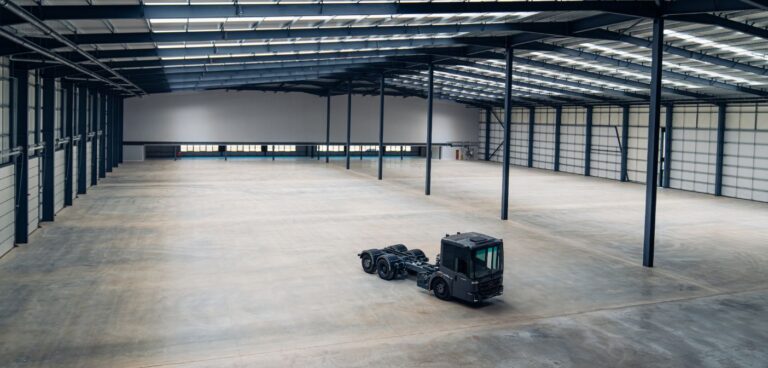Lunaz has announced the establishment of its new EV up-cycling campus at Silverstone Technology Park, Northamptonshire.
The upcycling and electrification plant, which Lunaz claims is the first of its kind in the world, will add 140,000ft2 (13,006m2) to the company’s current sites and quadruple its remanufacturing and electrification footprint.
It should also create space for Lunaz Applied Technologies (LAT), which upcycles industrial vehicles powered by diesel into warrantied-as-new-condition EVs.
These upcycled electric vehicles (UEVs) also incorporate significant safety, connectivity and ergonomic improvements, with the aim of accelerating net zero development and supporting driver and crew wellbeing.
“The growth of the Lunaz Group affirms the UK’s status as a leader in the development of clean-air automotive technologies,” said David Lorenz, founder at Lunaz Group.
“Firms like Lunaz, which operate in the principles of the circular economy, show that British industry can provide potent answers to the global need to transition to less impactful industrial practices.”
LAT’s expanded upcycling campus is the biggest within the Silverstone Technology Cluster by space and employees. Lunaz claims it is the first of its kind to focus on the upcycling, re-engineering and electrification of industrial vehicles at scale.
The new upcycling and electrification industry reportedly responds to the need to transition the more than two billion vehicles that are said to currently exist to clean-tech power sources ahead of the upcoming ban on the sale of new diesel and petrol cars.
Lunaz plans to create more than 300 jobs and is currently recruiting across the manufacturing and EV industries.
As well as supporting fleet operators and authorities to reach their net zero goals, LAT has invested in technology to reduce its own environmental footprint.
The campus will reportedly be thermally efficient and use renewable electricity for heating. Lunaz also claims that all tools used by production experts will be battery-operated and that vehicle ramps will use an energy recovery system to minimise power usage.
According to Lunaz, when repurposed into UEVs, vehicles become cleaner, less expensive and better-equipped than their all-new equivalents.
Independent research commissioned by LAT revealed that upcycling a vehicle saves more than 80% of its carbon versus a new replacement.





